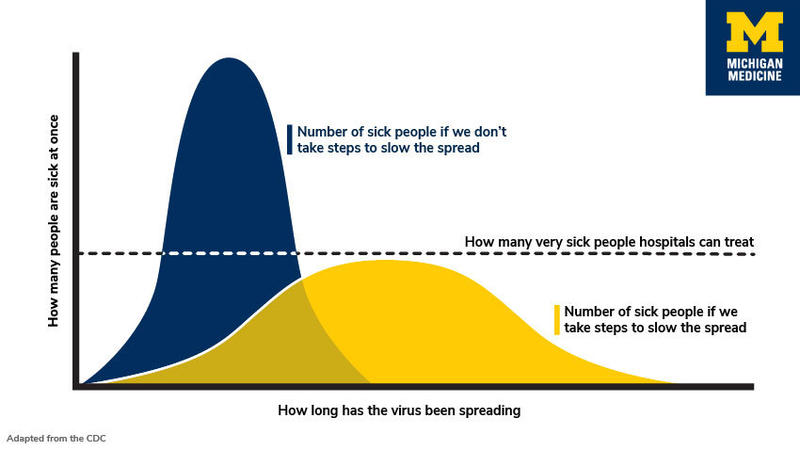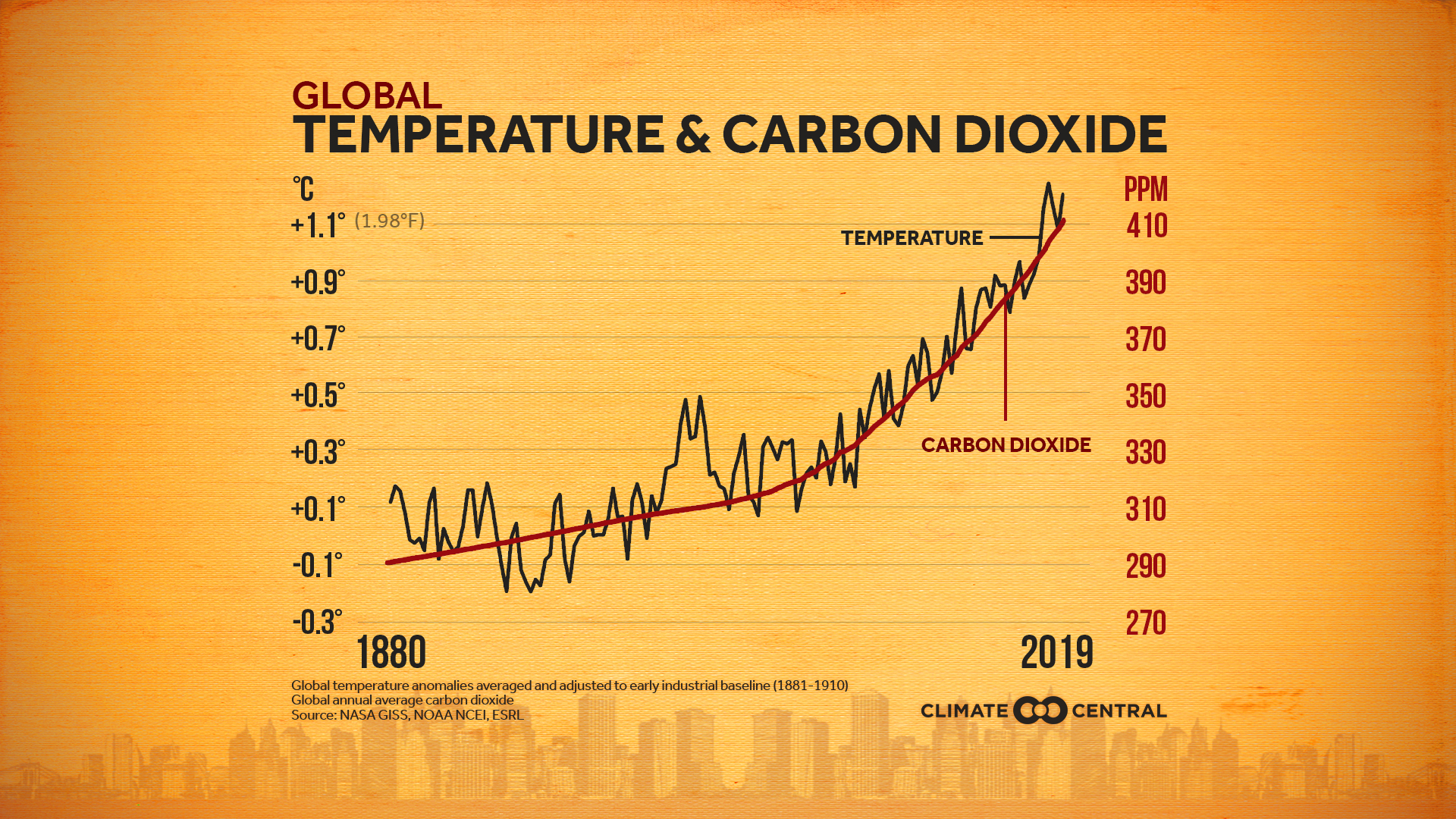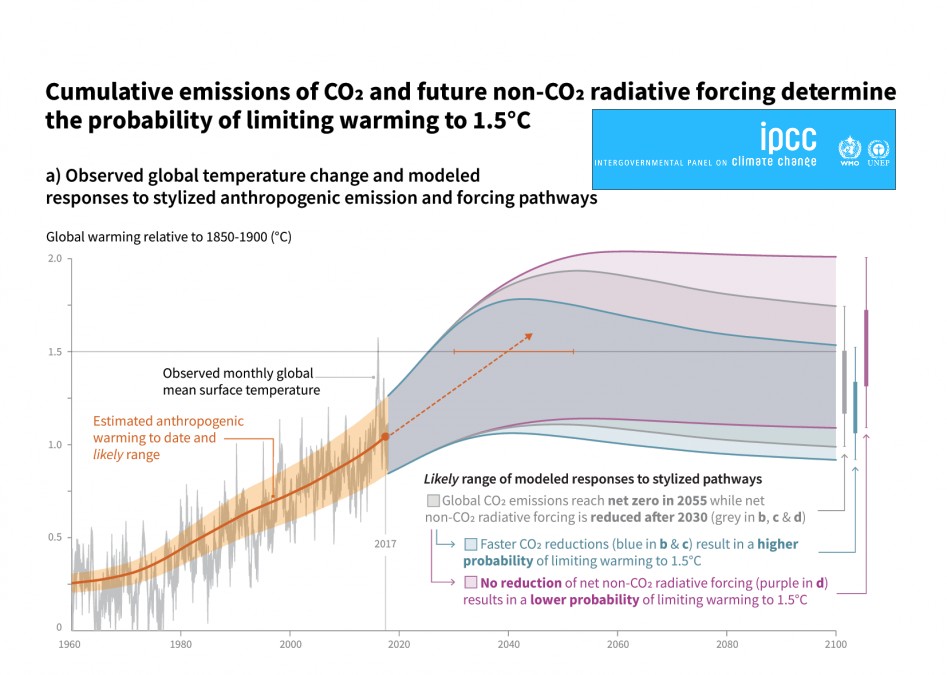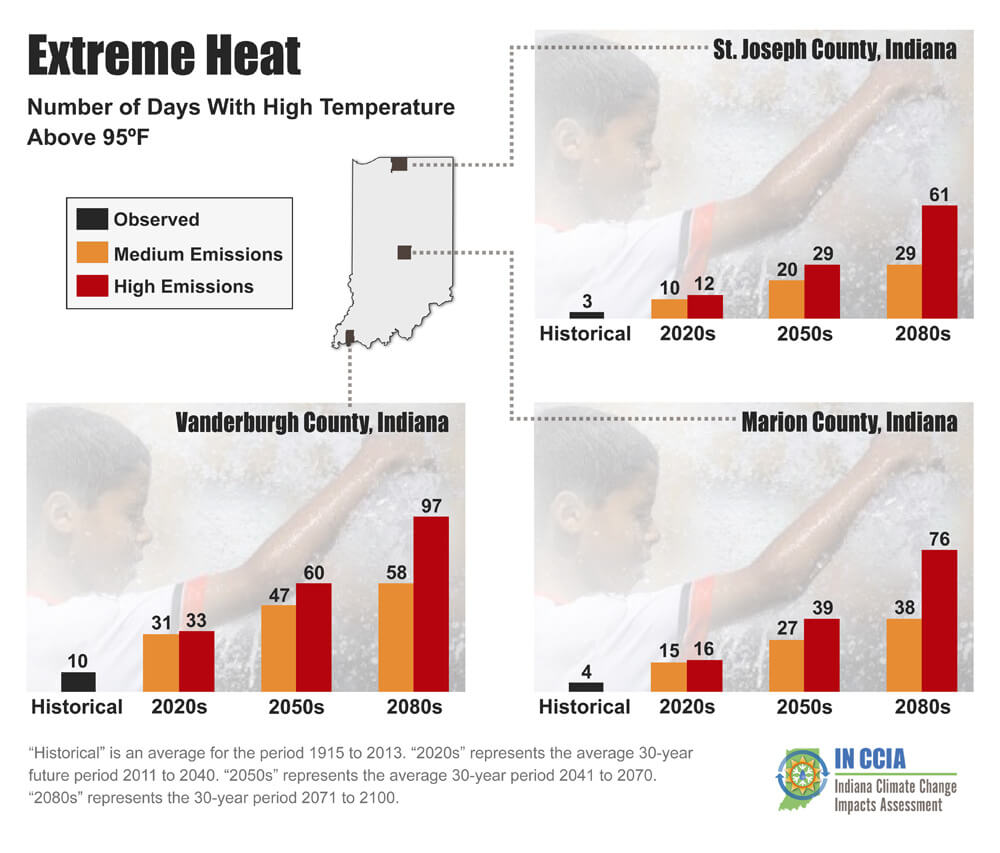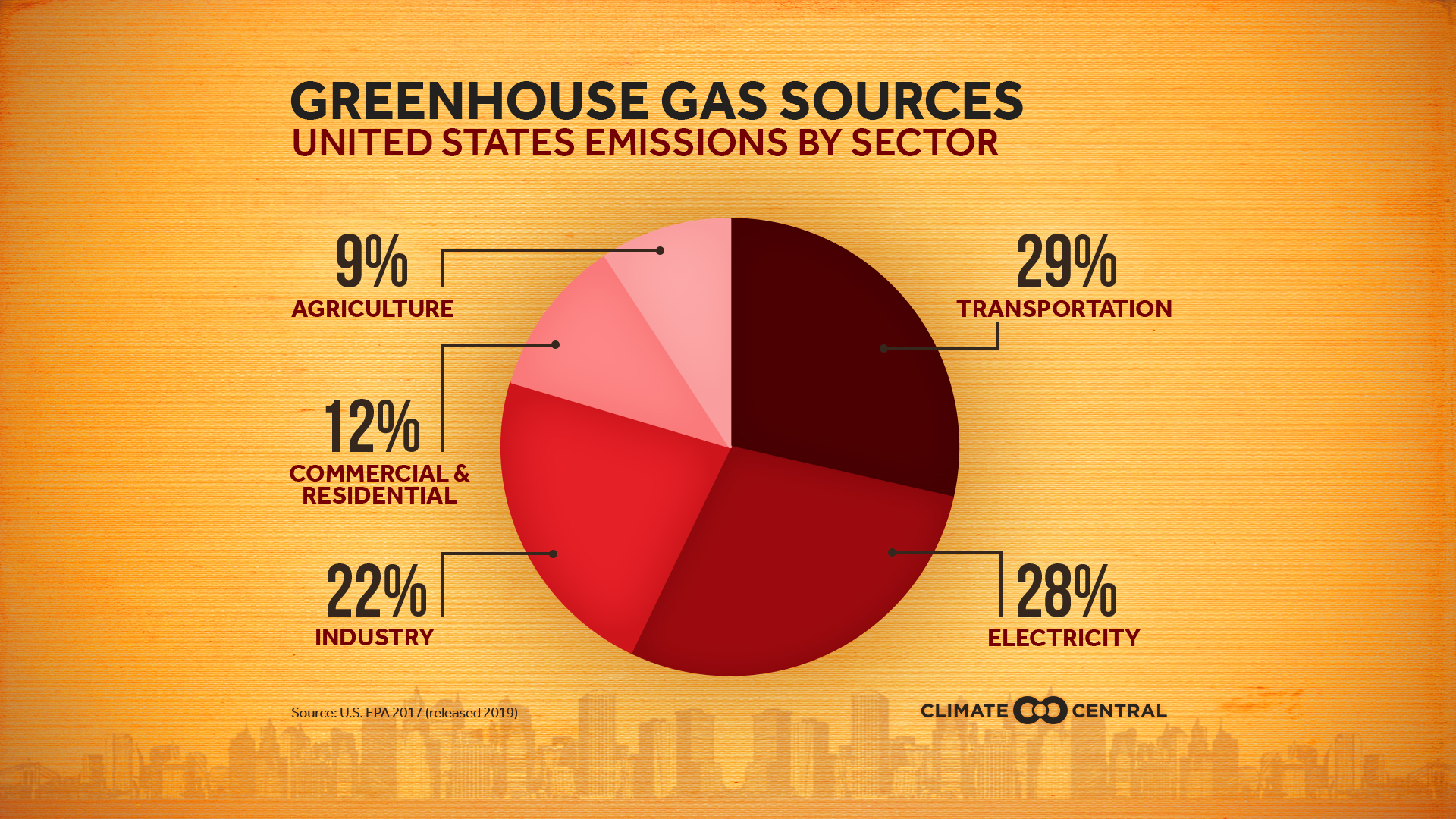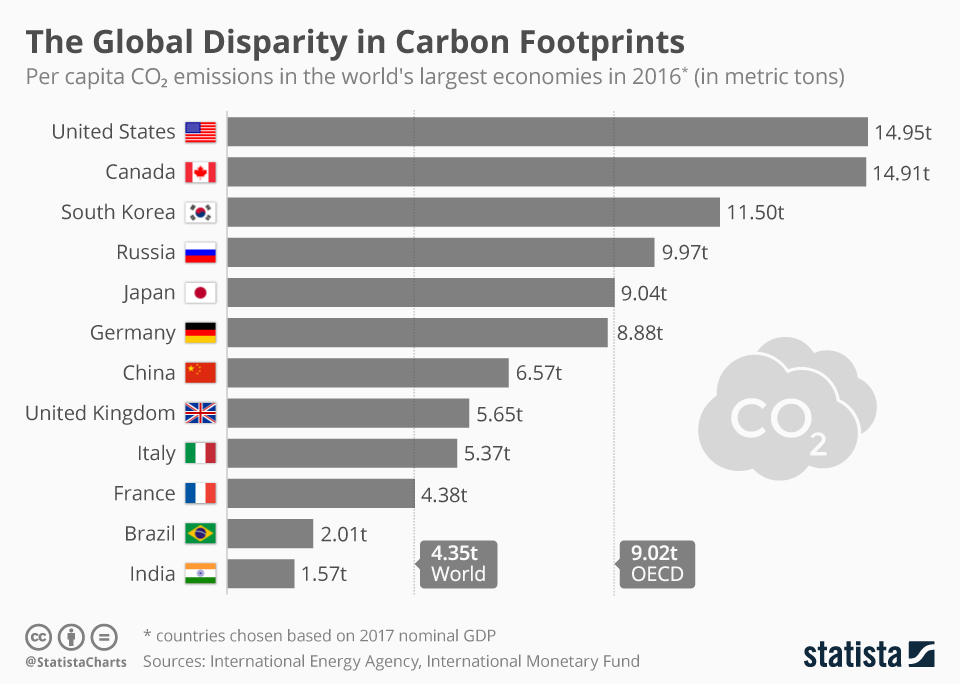The coronavirus has given everyone a crash course on exponential growth-- how a relatively small concentration can multiply and grow. Meanwhile, its impact compounded quickly. For example, the growing number of COVID-19 cases can overwhelm hospitals leading to more deaths, even some deaths unrelated to COVID-19.
FLATTEN THE CURVE has been the 101 lesson of our statistical crash course. Drastic emergency actions, such as stay-at-home orders, are the most effective way to reduce the rate of infection over a short period of time .
So what does this have to do with climate change? Scientists have been sounding the alarm for decades about the rising levels of carbon dioxide in the atmosphere and the compounding effect that is warming the planet.
The projections of the impacts of warming are also based on what mitigating actions are done globally. Climate scientists have been urging policy makers to flatten the carbon curve to limit warming to 1.5°C above the long-term mean global temperature. The latest Intergovernmental Panel on Climate Change report gives projects on warming based on mitigating actions.
Does this look and sound familiar? It’s why many climate projections give higher and lower emission outlooks, such as this report from Purdue University.
Just like with COVID-19, any delay in early action means more drastic measures may be needed later to lower the numbers. The excess carbon dioxide (CO2) in the atmosphere won’t disappear quickly. It can stay in the atmosphere for hundreds, if not thousands, of years.
Some solutions may be easier than others, such as simply driving less. More people might work from home permanently after this pandemic. Burning less fuel daily would have a positive impact. Changing a national energy policy to greener options may not be as quick or easy, but it would also be highly effective.
The United States is the largest carbon emitter per capita, which also means any actions we take as a country would significantly impact the numbers worldwide, just like with COVID-19.
We can learn from the triumphs and failures from the coronavirus and apply them to the same problems presented by climate change.
















